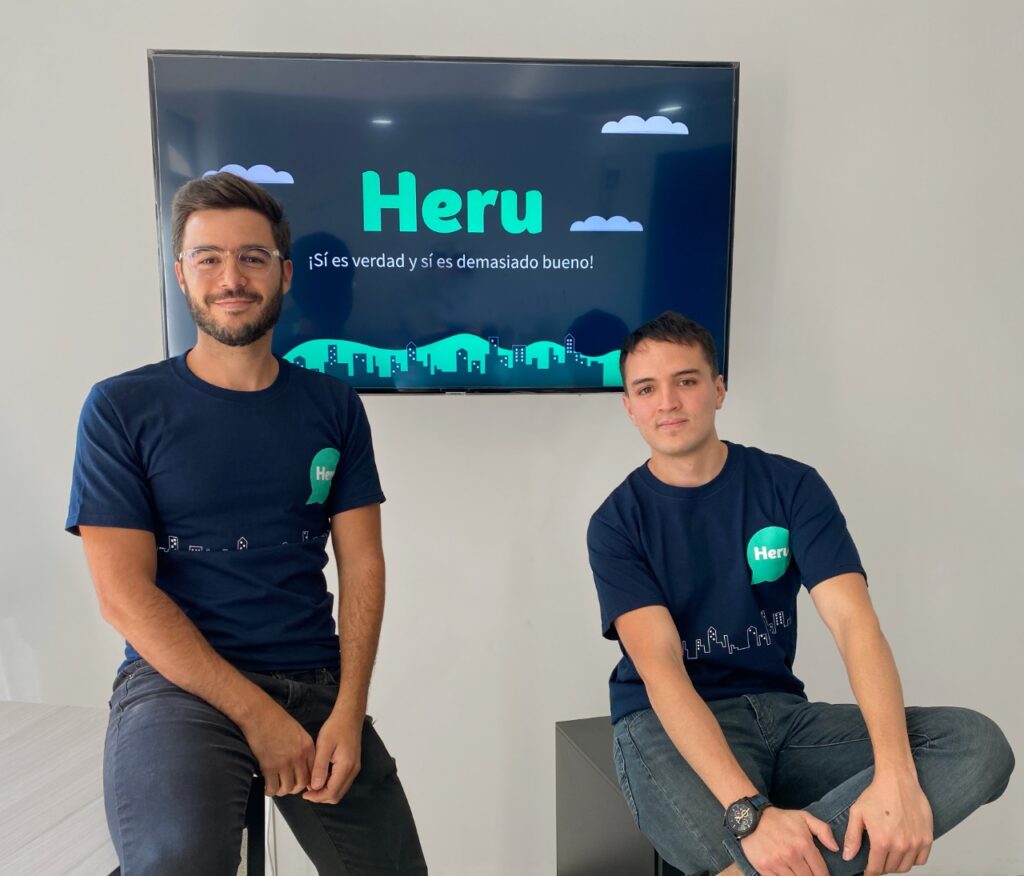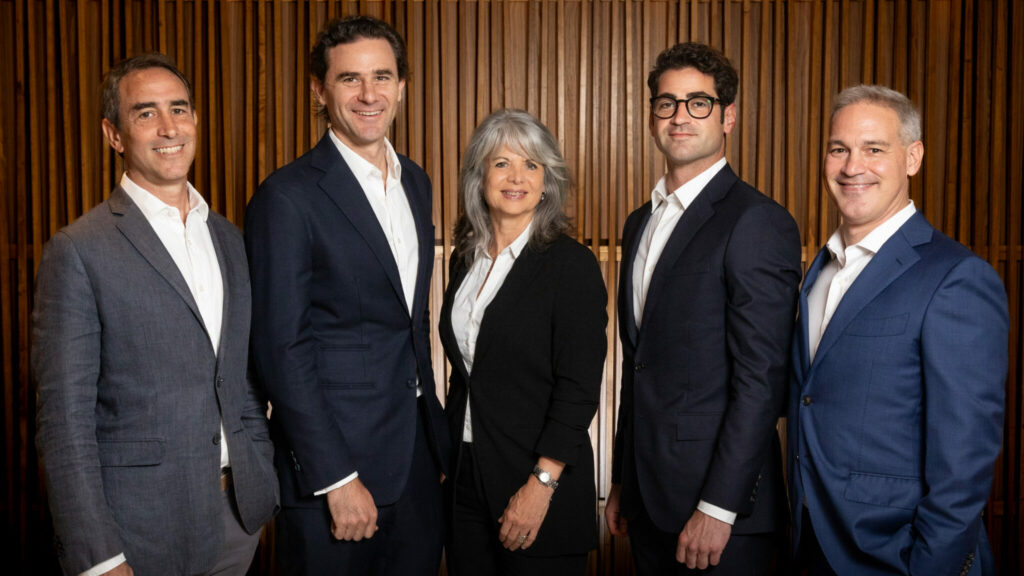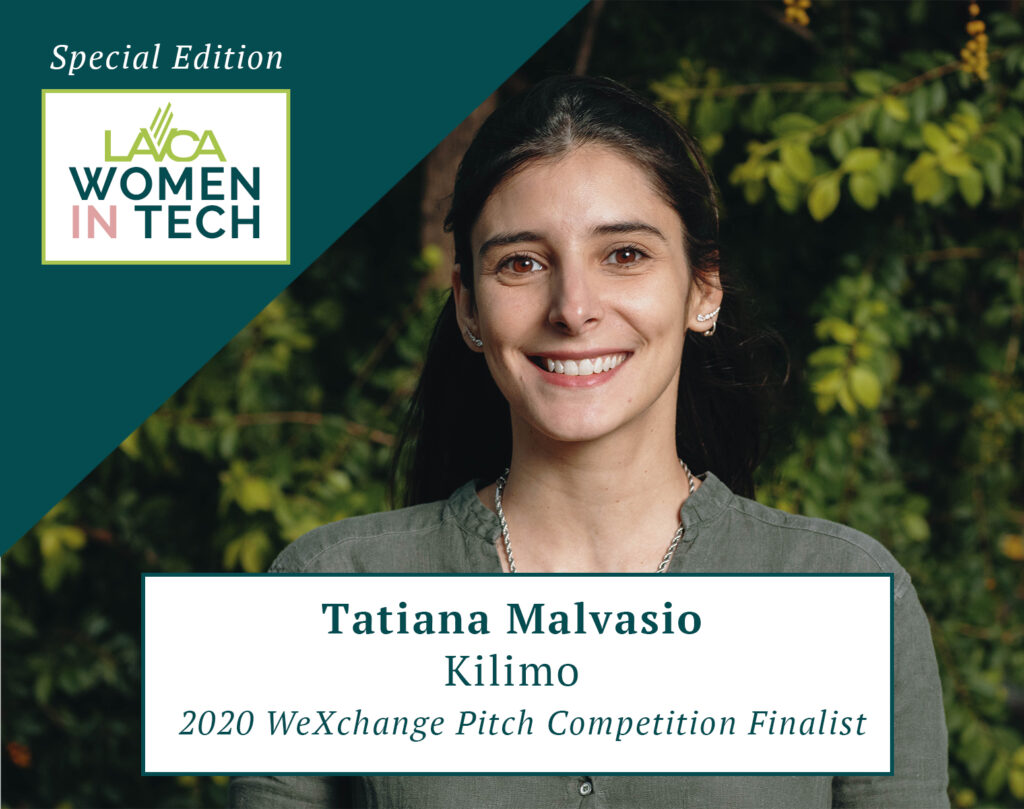Entrepreneur Profiles
The Gig Economy in Latin America: Interview with Heru Co-Founders Stiven Rodriguez and Mateo Jaramillo
22 December 2020

Company: Heru
Investors: Mountain Nazca, Flourish Ventures, Magma Partners, Y Combinator, Xtraordinary Ventures
Interview with: Co-Founders Stiven Rodriguez and Mateo Jaramillo
A recent study conducted by Flourish Ventures, MEI Facil, and 60 Decibels shed light on the current lives of gig workers across Latin America, finding that seven out of ten microentrepreneurs are currently earning less than US$200/month in Brazil, which is only 4% higher than the minimum wage, and almost 90% of the 1,600 professionals surveyed had a drop in income as a direct result of the C19 pandemic.
The gig economy continues to be under scrutiny while governments and the private sector aim to accommodate the role of these professionals within society.
Heru, a Mexican personal finance and fiscal management platform for gig workers, recently raised a US$1.7m round led by Mountain Nazca, with participation from Flourish Ventures, Magma Partners, Y Combinator, and Xtraordinary Venture Partners.
LAVCA interviewed Co-Founders Stiven Rodriguez and Mateo Jaramillo to further understand the current status of the local gig economy and the vision of the company for independent workers.
What is the origin story behind Heru?
Mateo: Stiven and I are originally from Colombia, and we met while working for Uber in Mexico City after having launched the company’s operations in Bogota and Cali.
After five years of working together, we decided we wanted to launch our own thing and created Qualtri, a hospitality chain very similar to a model we had seen in India, operated by OYO Rooms. We applied to Y Combinator, and after going through the program, we realized OYO already had a foot in Mexico and had recruited more than 200 team members. We then decided to convene with the investors that had trusted us with their capital and be fully transparent about our doubts on stepping into the hospitality market. Fortunately, our investors were fully supportive in pivoting and trusted our direction as entrepreneurs.
So it was back to the drawing board. After three months of brainstorming, we ended up with a list of 371 ideas that had been successful in other markets and we thought could be replicated in Mexico. We evaluated each one through the lens of product-market fit, founder-market fit, competition, scalability potential, and market size.
At the same time, we had built a great relationship with Mountain Nazca and sat down with them to gain their feedback and market expertise on our top ideas.
We decided on Heru because we realized the idea wasn’t a copy of anything else we had seen before, and the venture was born purely from a need we had identified in the market. The name Heru means “something or someone who protects” for the Yanomamis, an Amazonian community settled between the borders of Venezuela and Brazil.
We formally recruited our first employee in February and launched our first product in May.
Why do you consider it a pressing need to serve this segment of the employed population?
Mateo: Independent workers do not have access to services or products made to fit their needs or working conditions, or if they do, they are too expensive. Most of the gig workers in Latin America live in the outskirts of major cities and commute every day for work. They spend most of their time on the street without access to a place where they can feel safe and are often rejected by the general public.
Heru aims to be the one-stop shop for gig workers in Latin America. We want to bridge the gap between the perks from formal employees and independent workers, which currently includes access to pension funds, car and health insurance, as well as a healthy environment to take care of professionals and ensure they succeed at their jobs.
Through our market research, we discovered that the biggest initial need for these gig workers was their lack of representation of an entity who could speak on their behalf and represent them. Gig workers want to have a voice and they need to have a sense of belonging. This is why we are so focused on building our community and investing in creating trust with these professionals, so they can feel Heru is there for them whenever they need us.
Our first product was Heru Casa, a food truck that we drove across Mexico City, providing delivery workers with access to Wi-Fi, clean water, and basic services, which enabled us to begin building a relationship and build trust. We currently have four of these Heru Casas across CDMX.
How do you think about investing in creating proprietary solutions in-house, or partnering with other players to offer these solutions as part of your platform?
Stiven: We currently have two proprietary products as part of our suite: Heru Casas and our fiscal and tax management software that enables workers to file and pay their taxes on time.
Starting June 2020, the Mexican government has made it mandatory for gig workers to file their taxes on a monthly basis, and without the proper infrastructure to do so, their licenses could be revoked and their income and sustenance would be in jeopardy.
However, given that we are currently at a very early stage, we recognize the power of partnering with the right players, including fintechs and insurtechs, so we can expand the suite of products we offer in a more efficient manner.
A good example is our recent partnership with Mexican insurance company Mapfre. Before we entered into the picture, Mapfre did not provide any insurance services for individuals who used a bicycle or a motorbike for professional services, which is the audience we serve. After showing Mapfre’s directors our vision for Heru, they agreed to extend Mapfre’s coverage to these workers, providing them with MXN$1,000 (~US$50) in daily insurance for road accidents, and a MXN$100k (~US$5k) in life insurance.
How was your experience launching Heru at the beginning of the C19 crisis, and what are some important drivers that will provide the company with a significant tailwind going forward?
Stiven: We launched operations on May 4, right in the middle of the pandemic, which was an interesting experience to say the least. We consider ourselves to be very bold, so we kept executing while the pandemic just confirmed the need that independent workers have to protect their wellbeing, their future, and their family.
In my opinion, the current global industrial and health landscape is reinforcing that companies will need to become more flexible on right-sizing their operations and adapting to market circumstances. This also means that they will opt to become more nimble and adjust their recruiting practices so they can have the optionality to reduce their team on-demand. This will fuel an increase in demand for gig workers and freelance professionals.
I believe we all now understand that future generations appreciate flexibility as much as a source of income. These young professionals rarely want to be attached to a single company for several years, and are driven more towards having more iterative experiences. Freelance work will increasingly enable them to pursue the lifestyle they have been seeking.
You may be interested in...
-

Is AI a Thing in Latin America? In Conversation with Hi Ventures
LAVCA sits down with Hi Venture to discuss their evolving thesis and vision for...
-

The Future of B2B Startup Investing in LatAm: In Conversation with NXTP
NXTP Ventures recently reached a USD98m final close for NXTP Fund III, its third...
-

A 20-Year Journey: An Interview with Technisys CEO Miguel Santos
Company: Technisys Investors: KASZEK, Dalus Capital, Riverwood Capital Interview...
-

Satellite Analytics & Irrigation Systems: Interview with Kilimo COO Tatiana Malvasio
Company: Kilimo Investors: NXTP Ventures, Alaya Capital, The Yield Lab, Xpand...